Shiloh and Lisa Peterson are a mother-daughter duo that participated in a CHOICE expedition to Mexico with the CHOICE Junior Board. This transcript comes from their remarks at the 2024 Breakfast of Humanitarians, which took place on World Water Day. Read more about the Breakfast event in the blog recap or listen to the recording. The transcript has been edited for clarity.
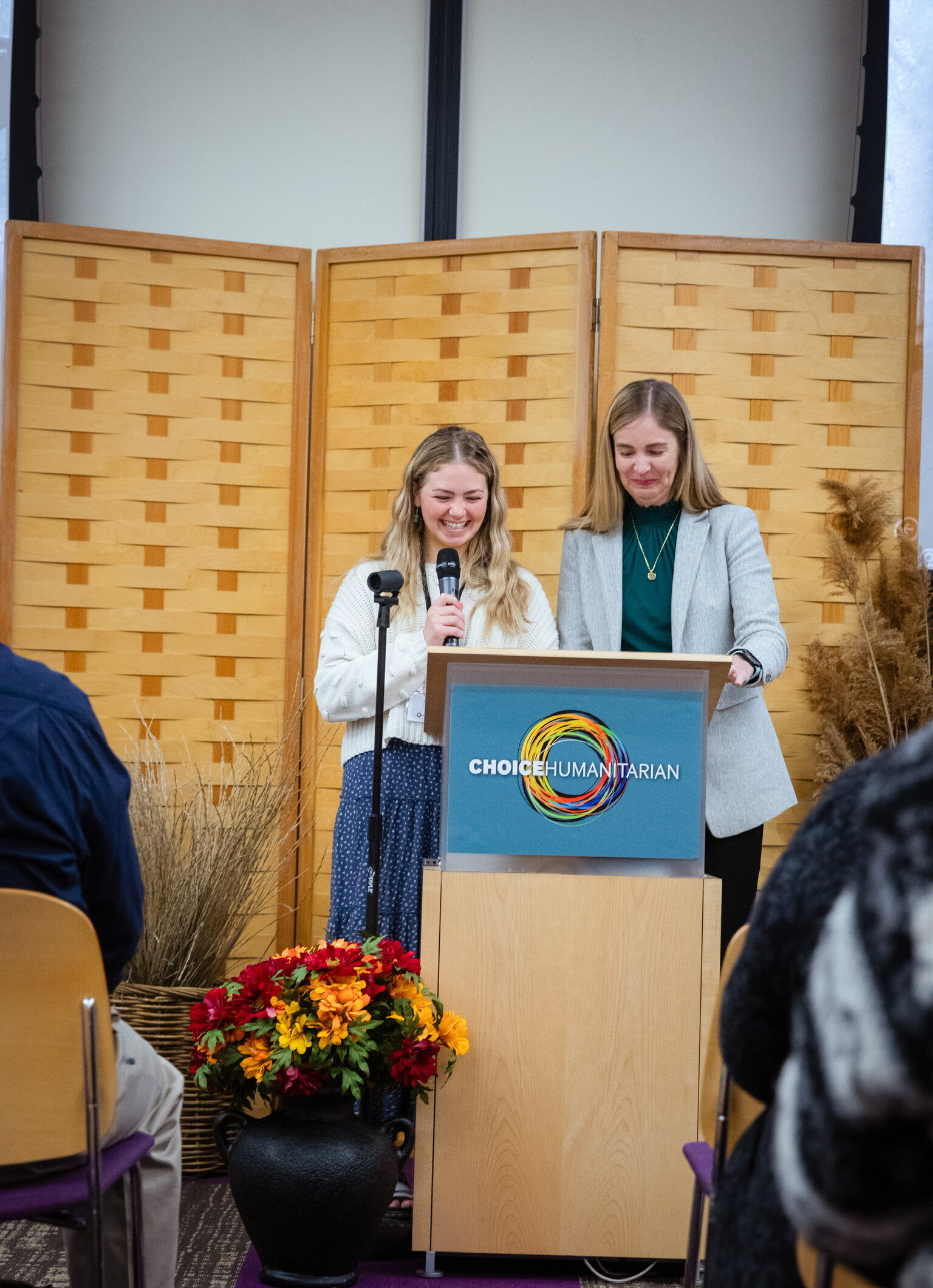
Shiloh Peterson: I'm happy to be with you here today. I'm Shiloh Peterson. I am 16 years old and a junior at Olympus High School. I'm the oldest of four sisters and work at Amy Boutique. I'm also the captain of the JV lacrosse team and serve as the secretary on the CHOICE Humanitarian Junior Board.
Lisa Peterson: Good morning. It's so lovely to be here with all of you amazing people. I have the privilege of being Shiloh's mom. I'm married to Chris Peterson, who's a mural artist, and I'm also the VP of Sales for 97th Floor, a digital marketing agency just up the road. In partnership with Bethany Jones, we have the opportunity to mentor Shiloh and the rest of the CHOICE Junior Board members, and we are just in awe of their dedication to spending time—not a lot of teenagers think about things outside of their busy world, and these kids show up and they serve, and it's incredible.
Shiloh: The purpose of the awesome Junior Board is to build the next generation of humanitarians through service, education, and global awareness. We meet often to plan and organize fundraisers, support CHOICE events like this one, and create opportunities to share the mission of CHOICE to our friends and family. The CHOICE Junior Board has teens on it from Utah County up to Cache County. This year, our board has 30 kids. We are divided into subcommittees focused on events, fundraising, and social media and tech.
This past year, members of the CHOICE Junior Board traveled on a CHOICE expedition to Santa Rosa, Mexico, to serve the remote communities who are in serious need of sustainable systems for collecting and storing clean water. While we were in Mexico, we worked on three projects. Two of them focused on water storage, and the third was building beehives.
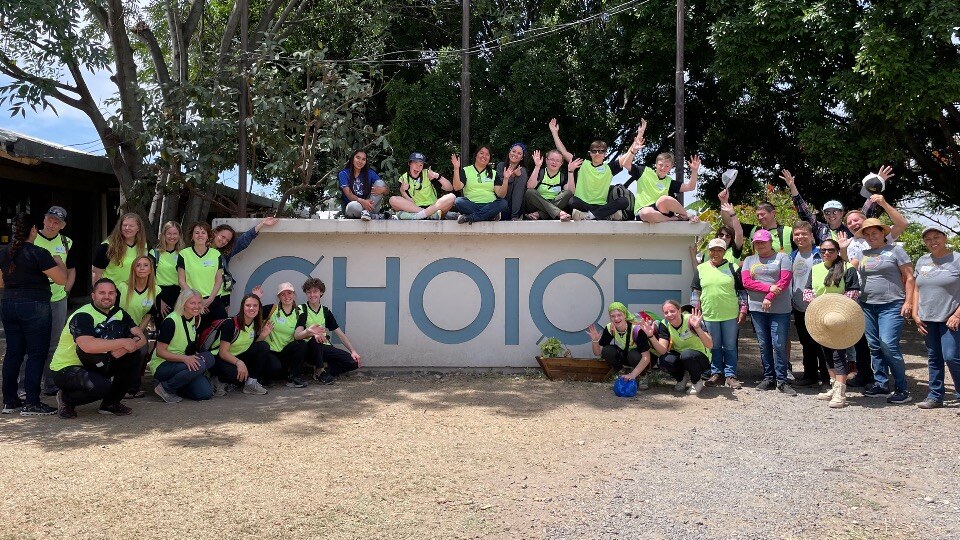
Lisa: When we think about the need of water around the world, we often think of delivering running water to those who don't have it, or more efficient agricultural practices, or digging wells. One aspect that is often overlooked is the need to navigate increasing water scarcity, particularly in remote geographic regions of the world.
The communities CHOICE serves in central Mexico typically get access to running water for three hours, once every 15 days. The shortage of water leaves families in a tremendous need to store and reuse the very finite amount they receive each month. CHOICE provides a variety of simple solutions to address these challenges using simple, locally sourced materials.
Ferro-cement is a mixture of cement, concrete, and metal mesh that is very resilient, strong, and has a variety of applications. The large cylinders are called cisterns, which are used to store between 15-2,500 gallons of water. These are much more durable than the traditional plastic cisterns, which have a very short lifespan.
Cisterns like these last much longer, they keep the water more cool, and they can store a lot more water than the plastic ones. Additionally, they cost about a quarter of the price of plastic ones. They take up less space due to a narrower footprint and are able to be patched and repaired in case of any cracks or damage. And the best part, they can be built by teenagers.
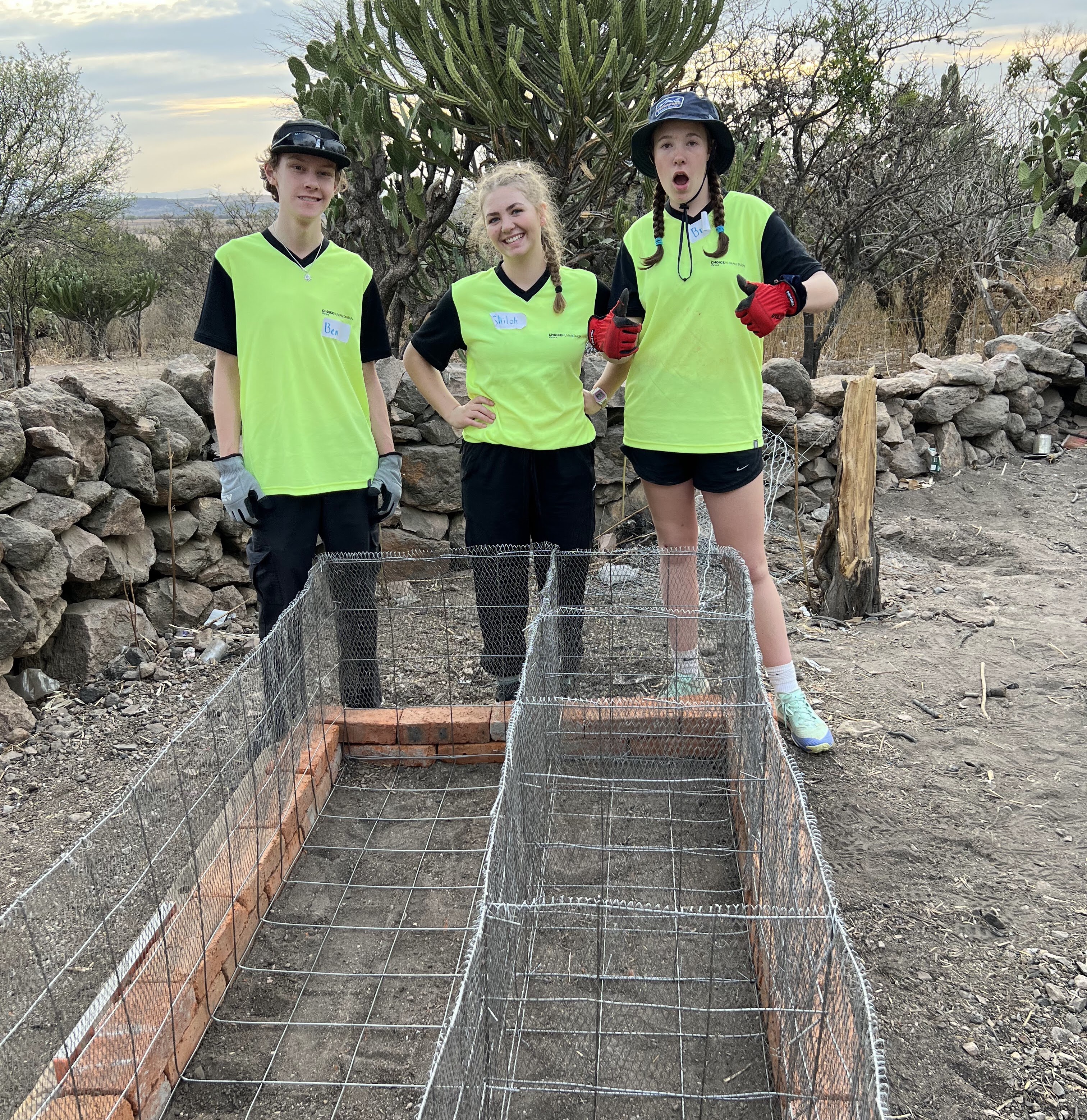
The water filters we build are designed to filter gray water for non-drinking uses like dishwashing and laundry, or the watering of gardens and trees. The gray or dirty water is poured into one of the smaller squares and then is gravity-filtered through a series of gravel, broken glass, charcoal, and sand that removes the debris and cleans the water.
This can extend the life cycle of the limited water beyond a single use. Doing this also then allows them to waste less of their clean drinking water when it is not necessary, and the gray water can be passed through the system twice before it is no longer usable.
Shiloh: The impact this has on the community is enormous. While we were in Mexico, one thing that stuck with me was each day as we walked from where we slept to the main gathering area in the village, we saw a six-year-old boy. He's the same age as my youngest sister. He was on a donkey with two to four buckets hanging off the back. He rode a far distance to gather water for his family. He filled his buckets from his dirty water well.
Because of CHOICE, these small villages are learning to build these systems themselves and are creating sustainable ways to make their lives better and allow children like this sweet boy to be kids and have safe drinking water.
Lisa: As we prepared the junior board members for our trip to Mexico, we studied Spanish, and we learned about the communities we would be in and the best way to serve them. As we prepared, the mindset I had was that of a chaperone. I was going to make sure these kids were safe—that they worked hard, and they had a life-changing experience. I hadn't thought much about the impact it would have on me beyond that.
Twenty-four hours into this journey, my lens shifted. I've been to many parts of the world. I thought I knew what poverty looked like, and I was prepared. I was wrong. It was shocking to me that just a few hours outside of Mexico City, there were beautiful people, mothers, children, and widows who genuinely have no way to offer their kids a bath or a clean drink of water.
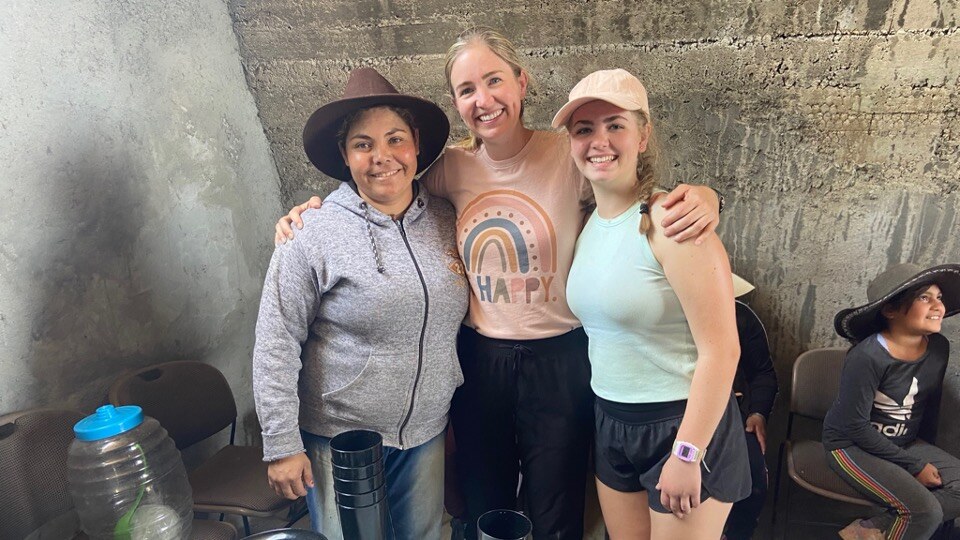
As a mother of four daughters, the gravity of this struck my core at a level that words cannot describe. Shiloh and I did all we could that week in the way of service, either physically building things, painting the schoolyard, or building friendship within the community. Leaving felt strange. The feelings of guilt, sadness, and frustration around wanting to do more sank deep in my soul.
When I came home and started living my normal life, I felt pulled to figure out a way to keep serving and trying to have an impact in whatever way I could. Overseeing the Junior Board is a small way that I can help, as well as sharing the mission of CHOICE to anyone who will listen and to help people see that we really can disrupt global poverty.
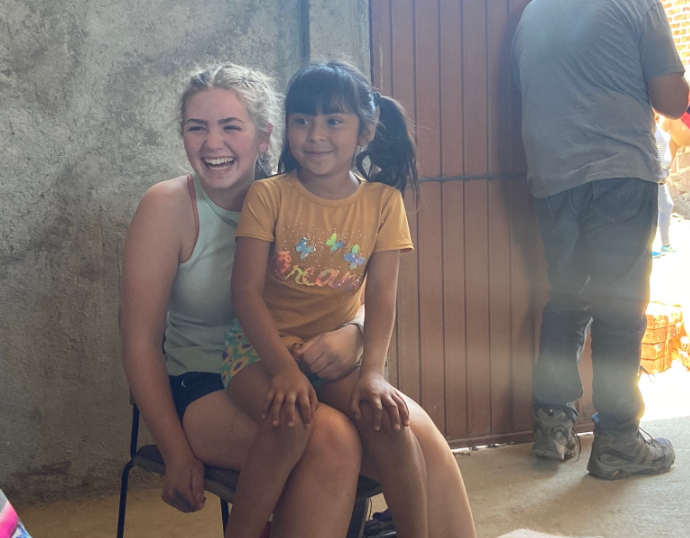
Shiloh: When my mom cries, I cry.
Having this experience of going on an expedition with my mom was amazing. As a family, we have already talked about how we can all do an expedition together in this coming year.
My hope for us on this World Water Day is to slow down enough to notice that drink of water you will take in the next few minutes and ponder:
Is this not a fundamental right of every human being, access to clean water?
Then, I hope you’ll decide what you will do to help solve this problem.
Read more remarks from Breakfast 2024 speakers